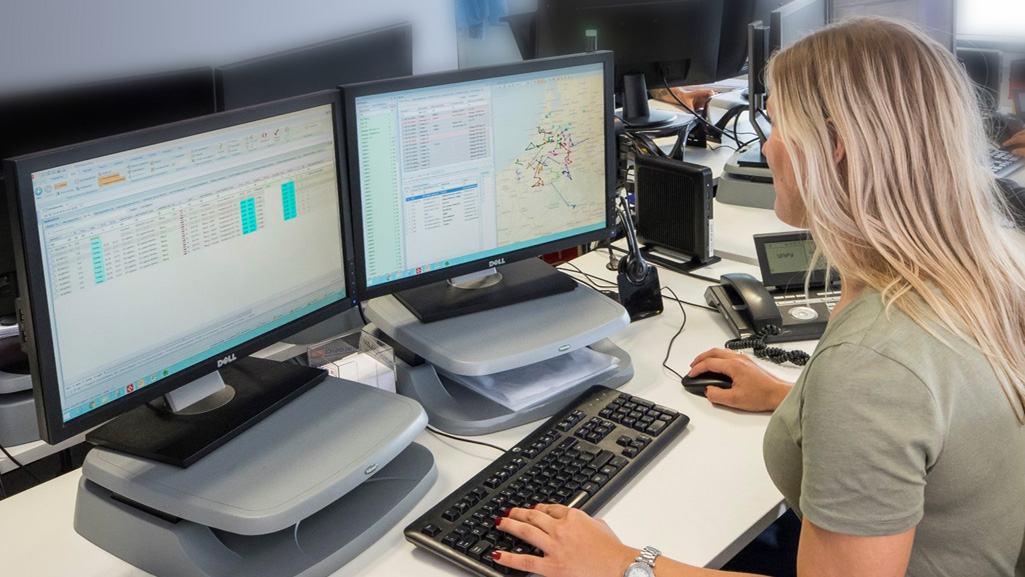Will the dispatcher soon be replaced by transport planning software? This question is being asked by more and more transport planners and logistics managers in times of digitization and the advent of artificial intelligence. The answer is clearly No. Routing and scheduling software uses intelligent algorithms and numerous variables to calculate a planning result with optimized routes. But not all variables, restrictions and conditions can be mapped by algorithms. Software can also hardly take exceptions and spontaneous deviations into account This is where the dispatcher comes into play with his knowledge and experience.
5 reasons why a dispatcher is essential for efficient transport planning
The dispatcher knows his customers
Dispatchers are often in contact with regular customers and thus have additional knowledge that is not provided by any system. This can make all the difference. An example: A customer has specified 8 a.m. to 11 a.m. as possible delivery time slot. The transport planning software automatically takes this into account and excludes a delivery outside this time frame. However, the dispatcher knows from experience that 11.30 a.m. is occasionally acceptable for the customer and therefore manually adds the shipment to another tour.
The dispatcher knows the fleet and the drivers
The software indicates that there is no more cargo space available in a truck so that a second tour would be required. However, the dispatcher knows his vehicles and goods best and is aware of the fact that with clever stacking he could add another consignment. The dispatcher also has more knowledge about the drivers, their preferences and qualifications than any software tool. Did a driver have a strenuous and frustrating journey with many delays and complications? Then it is better to allocate a more relaxed tour for the next day to him. This way the driver remains motivated – an increasingly important aspect in times of shortage of drivers.
The dispatcher can assess exceptional scenarios
Transport planning is becoming increasingly challenging. While the number of orders increases, the volume per order decreases at the same time. This means there are more stops per trip. The market’s growing need combined with stricter legal restrictions increase the complexity of the delivery process. Using transport planning software for the complex calculation of routes, gives the dispatcher more time to deal with exceptions and special events that the software solution cannot cover (e.g. if a driver falls ill after half of a tour or a tour has to be rescheduled due to a major event).
The tasks of a dispatcher go far beyond transport planning
A transport planning software saves valuable time. Time that the dispatcher then has at his disposal to advise customers and coordinate deliveries or to manage the drivers. For example, he can proactively inform customers if a trip is delayed and find solutions together with the driver. There is also more time for tactical and strategic issues: Which trips should be outsourced to service providers? Does it make sense to invest in expanding transport capacities? How do we increase driver satisfaction? In short: Transport planning software helps reduce stress and create added value.
A dispatcher keeps the system updated
A software is only as good as the input it receives. In order to ensure efficient planning, it is essential that the dispatcher continuously checks and adjusts the system with its settings, parameters and specifications.
Nowadays, software solutions can take on so many tasks that we often forget that they are just tools. Tools that facilitate the work of a dispatcher and help him make better decisions. The interaction of intelligent algorithms and the experience and knowledge of the dispatcher thus result in optimum planning, whereby the planner retains control and responsibility.
